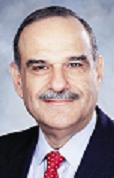Obstacles - Building Capacity and Insurance ...
More from Marketwatch:
Governor Kathleen Blanco says that once homeowners receive their Road Home money, the troubles won't end there. A shortage of capable -- and scrupulous -- contractors will stall the rebuilding process. The state is trying to address that by trying to lure potential contractors to beefed-up programs at technical and community colleges.
But getting New Orleans building capacity up to speed at a pace where the city could be reconstructed in a few years will require a monumental effort, said Andrew Kopplin, executive director of Louisiana Recovery Authority. Atlanta's homebuilding industry is one of the prolific in the nation, able to build 30,000 to 40,000 units year, but New Orleans stands at about 6,000 to 7,000 a year.
More critical, however, are skyrocketing insurance rates, Blanco says. Homeowners report their insurance premiums are growing geometrically -- up to five times what they were before the storm in some cases.
"That would be the second disaster. It could be the one thing that prevents us from a rebirth," Blanco said.
"Frankly, I think that [carriers] have all overreacted. Yes, we've had devastation. It was not from a hurricane. It was from the failure of man-made levees."
Sen. Mary Landrieu is taking an aggressive tack on this issue. In recent hearings, she and other senate colleagues started to take steps to repeal federal provisions that leave insurers immune from certain antitrust laws.
"We can't, every time there's a hurricane in the United States, raise insurance rates 50% and then expect to 'let the private sector redevelop,'" Landrieu said.
Carriers have been skittish for some time about growing concerns that Gulf storms will become more damaging in future hurricane seasons, thus prompting the massive premium increases, says Joseph Annotti, spokesman for the Property Casualty Insurers Association of America.
Annotti acknowledged that the New Orleans levee ruptures were more of a one-time event. He said insurers may eventually warm up to the city again once they're convinced that levees are sound. But it will take time, and the state may need to consider a public-private partnership to handle storm insurance. Reinsurers have vacated the region, thus putting more risk on primary carriers, he added.
"I think you have an industry that very, very gun shy," he said. "Katrina wiped out all premiums and profits that have been collected in Louisiana for 25 years."
More next time ...
Governor Kathleen Blanco says that once homeowners receive their Road Home money, the troubles won't end there. A shortage of capable -- and scrupulous -- contractors will stall the rebuilding process. The state is trying to address that by trying to lure potential contractors to beefed-up programs at technical and community colleges.
But getting New Orleans building capacity up to speed at a pace where the city could be reconstructed in a few years will require a monumental effort, said Andrew Kopplin, executive director of Louisiana Recovery Authority. Atlanta's homebuilding industry is one of the prolific in the nation, able to build 30,000 to 40,000 units year, but New Orleans stands at about 6,000 to 7,000 a year.
More critical, however, are skyrocketing insurance rates, Blanco says. Homeowners report their insurance premiums are growing geometrically -- up to five times what they were before the storm in some cases.
"That would be the second disaster. It could be the one thing that prevents us from a rebirth," Blanco said.
"Frankly, I think that [carriers] have all overreacted. Yes, we've had devastation. It was not from a hurricane. It was from the failure of man-made levees."
Sen. Mary Landrieu is taking an aggressive tack on this issue. In recent hearings, she and other senate colleagues started to take steps to repeal federal provisions that leave insurers immune from certain antitrust laws.
"We can't, every time there's a hurricane in the United States, raise insurance rates 50% and then expect to 'let the private sector redevelop,'" Landrieu said.
Carriers have been skittish for some time about growing concerns that Gulf storms will become more damaging in future hurricane seasons, thus prompting the massive premium increases, says Joseph Annotti, spokesman for the Property Casualty Insurers Association of America.
Annotti acknowledged that the New Orleans levee ruptures were more of a one-time event. He said insurers may eventually warm up to the city again once they're convinced that levees are sound. But it will take time, and the state may need to consider a public-private partnership to handle storm insurance. Reinsurers have vacated the region, thus putting more risk on primary carriers, he added.
"I think you have an industry that very, very gun shy," he said. "Katrina wiped out all premiums and profits that have been collected in Louisiana for 25 years."
More next time ...





0 Comments:
Post a Comment
<< Home